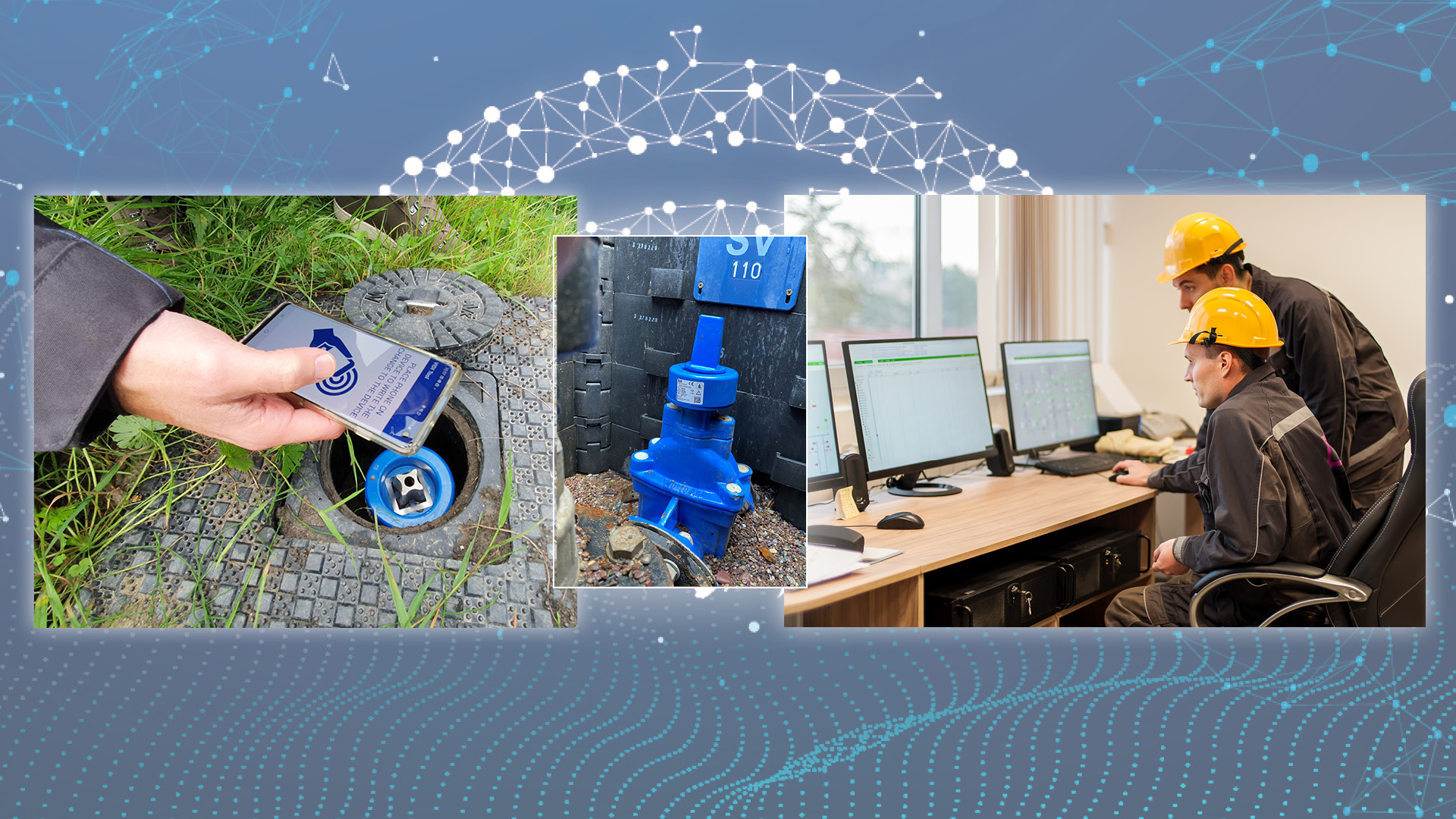
Smart Technology and Data Effectiveness. A Vast Potential.
AVK UK discuss their thoughts on the current state of smart water networks and technology in the UK water industry.
There are many definitions of smart water networks, but all of them embrace the concept of using data to optimise a network’s performance.
The effectiveness of such optimisation depends on the accuracy and frequency of the data being analysed, and the number, variety and spread of data collection points. It also requires all devices to provide data in a format enabling it to be freely integrated into whatever network management tool a water company is using.
The Use of Data Loggers in Water Networks
The principles behind smart water networks are not new. There have been data loggers monitoring pressure, flow, quality, transients, and temperature for many years. However, the deployment of such loggers has been constrained by their expense, battery life, communication networks and, in many cases, the lack of open APIs (Application Programming Interface). It is vital for the credibility of smart water networks going forward that there is no data colonialism; data must be device-agnostic, able to flow freely enabling a water company’s network management tool to become a single source of truth. This is particularly true if water companies seek to embrace the power of AI (Artificial Intelligence) and machine learning to assist with network management; such learning can only be effective if the system has access to all the data. This does not mean there is a need to replace legacy data loggers. As long as they have useful battery life and provide open data, then they can be an important part of the solution rather than a problem.
Smart Water Technology. Frequent Data from the Remotest Locations
One style of ‘sales pitch’ goes along the lines of: ‘If I told you new smart water technology could provide you with more frequent data, work in the most remote locations, have batteries that last three or four times longer, you’d be interested.’ The pitch is accurate. For example, sensors in the AVK VIDI range transmit data at half-hourly intervals rather than once a day; in remote locations where 4G and NBIoT communication channels struggle, the sensors can use LoRaWAN radio networks to transmit data; and battery life transmitting at half-hourly intervals is typically ten years; oh, and they’re cheaper than traditional data loggers. Despite these seemingly overwhelming benefits – the data is better, the transmission is more reliable, the technology is cheaper - some water companies are reluctant to adopt the new generation of smart water technology. Why is this?
Strategic Guidance for Network Operations Teams
A widely-shared viewpoint, is that a cultural shift is needed to align water company operations and procurement to achieve greater rationality in smart water technology procurement. This is not to find fault with either operations or procurement, they both have to operate within legacy systems and with resources that favour inertia. As an operations manager, if I have argued for and received a budget for technology that is less effective and more expensive, then I may well still go ahead as revisiting the budget may risk me losing the money I have ‘won’. Furthermore, specifications may have to be rewritten, and where is the manpower resource to achieve that these days?! In our opinion, the water companies’ Senior Leadership Teams have to provide strategic guidance to their operations teams on the value to be placed on asset management if Ofwat targets are to be achieved within budget. In turn, the operations teams need to be given the freedom to choose and specify the best portfolio of technologies to meet these strategic goals.
We don’t believe it is wise from a procurement perspective, or indeed technically feasible, to deliver smart water networks from a single source of supply; however attractive that may appear. The emphasis should be on delivering the most effective and reliable network, using the best smart tool for each part of the job. There is a line of thought that smart technology suppliers, like AVK UK Smart Water, should be working more closely and openly with each other to make it easier for water companies to see, evaluate and embrace the bigger smart water network picture.
Making Informed Network Decisions from Data Directly Supplied to Operations
From all the reports one reads, it appears that the operations and engineering skills base in the water industry is gradually diminishing due to an ageing workforce. This places an onus on water companies to get the most out of the skilled personnel that remain. Smart water networks can help with this. Engineers should no longer have to drive around, manually downloading data from loggers, or reporting whether a valve is open or closed. Their experience would be best used making informed operational decisions based on data collected automatically from valves, hydrants, pumping stations and more located across the network.
Water companies are going to be faced with challenging targets in AMP8. Recent environmental and financial crises, mean their work will be under increased political and media scrutiny. It would not be unreasonable for the politicians and public to ask whether they are making the most of technology to improve, for example, leakage rates or water pressures at the tap or CSO discharges and more.
A Sustainable Future with Smart Water Technology
Smart water network technology has now reached a maturity and affordability which means it is ready to contribute to a brighter and more sustainable future for water in the UK; but only if it is given the opportunity to do so.
Contact AVK UK.
If you wish to know more about AVK Smart Water contact Anthony Whittam, our product specialist. Call him on the number shown above or alternatively, click on the email icon to write to him directly.





